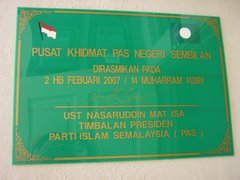Unlike the rest of the province, which is predominantly Muslim, the capital city Urumqi is populated by mostly Han Chinese.
To the Han Chinese, Xinjiang — so named by Qing Dynasty rulers and whose name means “new frontier” — has been a part of China since 1884. Before that, China and 36 small kingdoms in the region had maintained a kind of suzerain relationship for some 2,000 years. But in the eyes of the Uighurs, their homeland was taken away from them.
It was, in fact, the Chinese Communist Party (CCP) that first spurred the Uighurs' separatist aspirations. In its bid to weaken the ruling Kuomintang government in the 1940s, the CCP encouraged Xinjiang to break away from China.

Led by CCP member Bao Erhan, himself an Uighur, the Uighurs succeeded in 1944-45 to declare the establishment of an East Turkestan Republic (ETR) covering the present-day lands of Yili, Tacheng and Aishan in northern Xinjiang.
Bao, who later became deputy chairman of the Chinese People's Political Consultative Conference (CPPCC), admitted in his memoirs that the independence movement received strong support from the Soviet Union. ETR's success resulted in the growth of similar movements in southern Xinjiang and Tibet.
At the time, CCP leader Mao Zedong fully endorsed the separatist movement. In his congratulatory message to the newly established ETR, Mao said that the ETR movement “was an integral part of the Chinese people's democratic revolution”.
But the CCP did an about-face after it won power in 1949, cracking down hard on separatism. General Wang Zhen was dispatched to suppress the disgruntled and his iron-hand rule earned him the nickname Tiger Wang. So while he was able to restore stability, albeit at gun-point, his heavy-handed ways only bred greater ethnic hatred.
The Uighurs felt betrayed. Subsequent missteps by the CCP served only to deepen the rift between the Uighurs and the Han Chinese.
These included promoting class struggles between social groups, depriving people of basic human rights and freedom, and destroying cultural relics of all sorts during the period from 1949 to 1976, which covers the 10-year disastrous Cultural Revolution.
Tens of millions of people died across China, Han Chinese and minority people alike. But to minority groups such as the Uighurs, atrocities on such a scale were akin to ethnic cleansing. No thanks to these missteps, Xinjiang and Tibet are now ticking ethnic time bombs.
The communist government has invested huge amounts of funds in recent decades to modernise their economies, in the belief that material progress would take the people's minds off separatist sentiments and ease ethnic tensions.
Progress has improved lives but, in the case of Xinjiang and Tibet, the people still hanker for autonomy. The late communist leader Hu Yaobang devised a six-point policy in 1985 as a way to accommodate these demands for autonomy in Xinjiang and Tibet.
Under this policy, the central government in Beijing would, for example, retain powers in only three areas: defence, diplomacy and right to veto certain domestic policies.
But Hu's fall from grace in 1987 meant that his benign policy was never implemented.
The Chinese authorities have blamed Uighur-related organisations operating abroad for instigating the current unrest.
In his paper on the Dangers of Balticisation of China's periphery this week, B. Raman noted the close links allegedly maintained by the Munich-based World Uighur Congress with the US National Endowment for Democracy (NED) and the Unrepresented Nations and Peoples Organisation (UNPO) in Holland. The UNPO had played an active role in promoting the separation of the Baltic States from the erstwhile Soviet Union.
“It (UNPO) had trained people from the Baltic states for many years. It has a similar active programme for the training of Uighurs from the diaspora. This training programme is allegedly being funded by the NED,” wrote Raman, who is director of the Institute For Topical Studies in Chennai and is also associated with the Chennai Centre for China Studies.
He concluded: “The Lhasa uprising of March 2008 and the Urumqi uprising of July 2009 have brought home a rude lesson to the Chinese — namely, that they cannot take China's unity and stability for granted.
“What happened in the Baltic states of the USSR can happen in China's periphery inhabited by non-Han minorities if they do not pay attention to their grievances, anger and political and cultural aspirations.”
Perhaps President Hu Jintao's surprise decision to drop the G-8 summit and rush home to attend to the Xinjiang crisis was not only a sound one, but also a first step in the right direction. — The Straits Times







.jpg)




















No comments:
Post a Comment